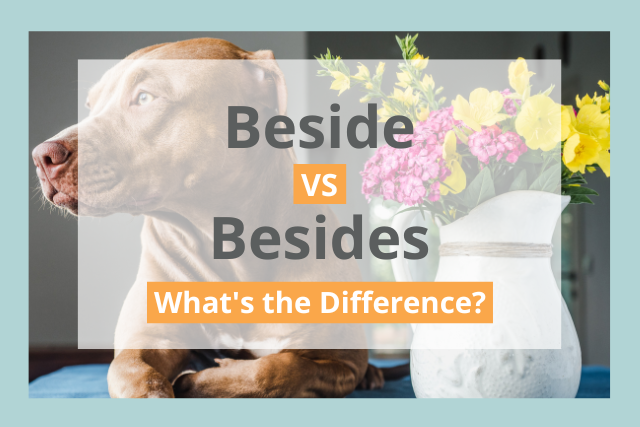
The words beside and besides are often confused because of their similar spelling. In this article, we explain the difference between them.
Beside means next to; at the side of when used as a preposition.
Besides means other than, except, also, moreover when used as a preposition.
A good way to remember the difference is It's Beside the Bed Side.
The Difference Between Beside vs Besides
Beside and Besides are often confused because they look almost identical, and they are both prepositions. Here's how to use them correctly.
Beside is a preposition that means next to or by the side of. It is used to describe a location (beside the couch) or compare nouns (the risks are low beside the benefits).
Besides is a preposition that can mean other than or except for (no one besides him can do it). It can also function as an adverb that means furthermore, moreover.
Is the expression 'To Be beside yourself' or 'To Be besides yourself'?
The correct expression is 'To Be beside yourself'. These phrases are often confused because they look similar.
What's the right phrase 'besides those already mentioned' or 'beside those already mentioned'?
The right phrase is 'besides those already mentioned'. These phrases are often confused because they are easy to mistype.
Some synonyms of besides are: as well, too, in any case, likewise, also, furthermore, and moreover.
A synonym of beside is: next to.
